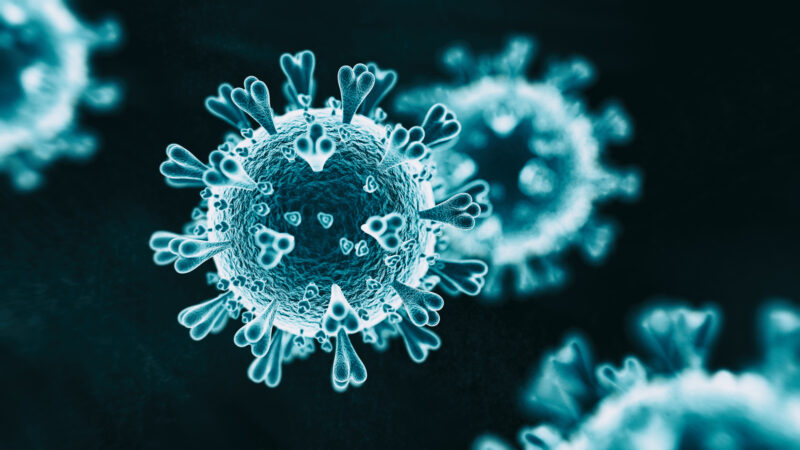Since the early days of the COVID-19 pandemic, mental confusion has been a difficult health problem for scientists to solve — a colloquial term to describe a state of mental sluggishness or lack of clarity and ambiguity that makes it difficult to understand and focus. Or remember things or think clearly.
Ziad Al-Ali, a specialist at Washington University in St. Louis in the United States, said that four years into the pandemic, there is abundant evidence that SARS-CoV-2 infection can affect the brain in different ways. However, despite a large and growing body of data, the specific pathways by which the virus does this are not yet understood, and curative treatments are lacking.
Two new studies, published in the New England Journal of Medicine, shed new light on the profound impact of COVID-19 on cognitive health — learn about some of the most important studies to date that have measured how COVID-19 affects brain health:
– Large epidemiological analyzes showed that those affected were at greater risk of developing cognitive deficits, such as memory problems;
– Imaging studies conducted on people before and after infection with Covid-19 have shown a decrease in brain volume and changes in brain structure after infection;
– A study in people with mild and moderate COVID-19 showed significant long-term brain inflammation and changes consistent with seven years of brain aging;
– Severe COVID-19 cases requiring hospitalization or intensive care can lead to cognitive deficits and other brain damage equivalent to 20 years of old age;
– Laboratory experiments on human and mouse brain organoids designed to mimic changes in the human brain have shown that SARS-CoV-2 infection leads to the fusion of brain cells, effectively “short-circuiting” the brain’s electrical activity and impairing its function;
Autopsy studies of people who had severe Covid-19 but died months later from other causes have shown that the virus is still present in brain tissue, suggesting that SARS-CoV-2 is not just a respiratory virus, but can also enter the brain from some… individuals;
Even when the virus is mild and limited to the lungs only, studies show that it can cause inflammation in the brain and impair the ability of brain cells to regenerate.
Covid-19 can also disrupt the blood-brain barrier, the shield that protects the nervous system, making it “permeable.”
– A large preliminary analysis that collected data from 11 studies covering nearly 1 million people with Covid-19 and more than 6 million uninfected individuals showed that the risk of developing new dementia increases in people over 60 years of age.
More recently, a new study published in the New England Journal of Medicine evaluated cognitive abilities such as memory, planning, and spatial reasoning in nearly 113,000 people who had already been infected. The researchers found that those affected showed significant deficits in memory and performance of executive tasks.
This decrease was evident among those infected in the first phase of the epidemic and among those infected when the Delta and Omicron variants were dominant. These results show that the risk of cognitive decline did not decrease as the pandemic virus evolved from the ancestral lineage.
In the same study, those who had mild COVID-19 and recovered showed cognitive decline equivalent to an IQ loss of three points. In comparison, those with persistent, unresolved symptoms, such as people with persistent shortness of breath or fatigue, had a 6-point loss in IQ. Those admitted to the ICU had a 9-point loss in IQ. Reinfection with the virus contributed to losing two additional IQ points compared to not being reinfected.
Typically, the average IQ is around 100. An IQ above 130 indicates a highly gifted individual, while an IQ below 70 generally indicates a level of intellectual disability that may require significant social support.
To put the conclusions of the New England Journal of Medicine study into perspective, the expert estimated, in an article on the “The Conversation” portal, that a decrease in IQ by 3 points would increase the number of adults in North America with low IQ. to 70 from 4.7 million to 7.5 million – an increase of 2.8. Millions of adults experience some level of cognitive impairment that requires significant social support.
Data from the European Union showed that in 2022, 15% of people reported problems with memory and concentration.
Looking to the future, it will be crucial to determine who is most at risk. There is also a need to better understand how these trends impact the educational success of children and youth and the economic productivity of working-age adults. It is not clear to what extent these changes will impact the epidemiology of dementia and Alzheimer's disease.
A growing body of research has now confirmed that SARS-CoV-2 should be considered a virus with a significant impact on the brain. The implications are far-reaching, but demystifying the true causes of these cognitive impairments, including brain fog, will require years, if not decades, of concerted effort by researchers around the world.

“Wannabe internet buff. Future teen idol. Hardcore zombie guru. Gamer. Avid creator. Entrepreneur. Bacon ninja.”

